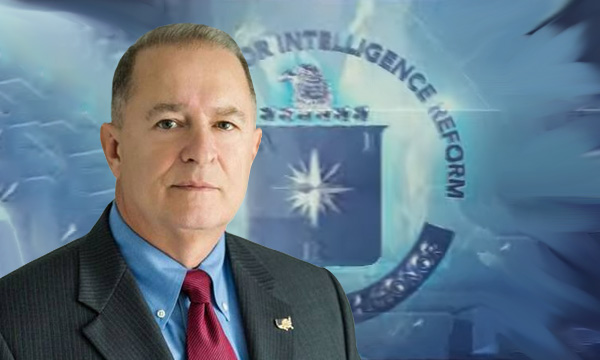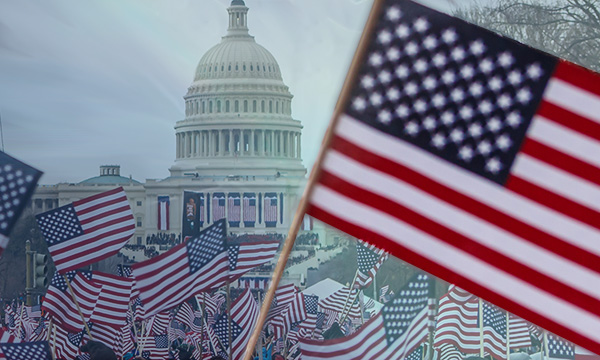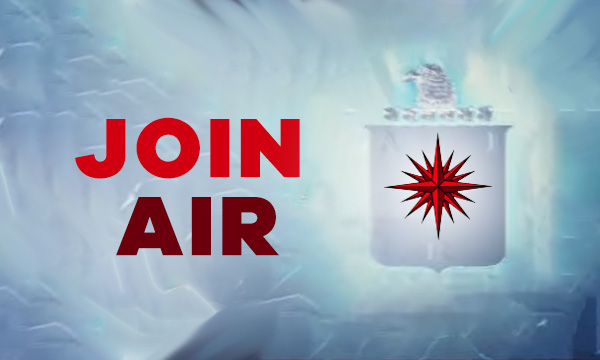A DINNER WITH ALGER HISS
“There are chance meetings with strangers that interest us from the first moment, before a word is spoken.”
Fyodor Dostoyeysky
Some of you have correctly observed that these missives are my attempt to leave a written record of my life for my children and grandchildren. For the most part, they are too busy to read them now, but maybe one day they will.
“Sigh.”
In short, I have been blessed in my lifetime to travel to amazing places, and during this time, I also have met some very, very interesting individuals.
Many of you could tell such stories of your own: I encourage you to do so.
During the mid- to late-1970s, I was adrift. I had returned from my military service years (the end of the Vietnam War) and was accepted to for a graduate program (in history) at Texas Christian University.
My years in Fort Worth, though a bittersweet experience, was an amazing time containing a smattering of truly remarkable events. I still have several good friends from that time frame (a special shoutout to Eustace F., Robert J., Rick S., Dan S.—the Shack—George T., and Gene F.). Thanks guys, for helping me keep a degree of sanity during those wild and crazy years.
At the time, in addition to the G.I. Bill, to help defray the costs of graduate classes, I functioned as a Teaching Assistant in TCU’s History Department. For the most part, I taught entry-level Western Civilization classes. My students were mostly freshmen: the other professors in the department taught upper division courses. Dr. Spencer Tucker was my mentor and advisor. I put him through his paces.
At any rate, during one semester (in either 1973 or 1974, I think) one of my best students approached me after class. I cannot remember his name after all these years (although I can still see his face). He was a member of the campus Student Council and they had invited a guest speaker for the following Monday: he was flying into Fort Worth, however, over the weekend. The student asked me if I would be interested in hosting him for dinner on Sunday.
“Who is he?” I asked.
“Alger Hiss,” he replied.
“Of course,” I said, excitedly.
Probably, the majority of you reading this missive have no idea who Alger Hiss was. Unfortunately, we don’t teach a history of the Cold War anymore, at either the high school or the college/university level.
That’s a shame.
Recently, my good friend Fred Mullinax sent me an opinion piece by Walter Russel Mead, that makes much the same point:
“Unfortunately, the American educational system in recent decades has treated the study of the foundations of American success with suspicion and disdain. Americans seeking to prepare themselves for the struggles of our era would do well to renew their acquaintance with the historyof the world system we are called again to defend.”1
At any rate, if you pull up Alger Hiss’s name in Wikipedia, you will discover the following facts. Hiss lived from 1904 to 1996. As a young, Harvard-educated intellectual in the years before World War II, he became part of Franklin Delano Roosevelt’s inner circle of advisors in the State Department and played a key role at the Dumbarton Oaks Conference which, in turn, established the United Nations after the war.
Hiss’s promising future as a lawyer, global diplomat and politician, however, started coming apart at the seams in 1948.
It is hard to recreate the passions and fear in the United States following World War II. Pro-Soviet governments in Eastern Europe were established and built a veritable “Iron Curtain”—Sir Winston Churchill’s famous borrowed word couplet—in the area buttressed by Soviet troops that remained after chasing out retreating Nazi armies. All this was exacerbated by the sudden and surprising fall of China to Mao’s communist cadres in a mainland civil war culminating in October 1949.2
The post-war optimism borne of the sacrifices made by the “Greatest Generation” in faraway battlefields in Europe and Asia gave way to a fear that an atheist, anti-democratic hegemon would undo all the war’s accomplishments. We demobilized and brought our troops home: many of the Soviet armies remained in place. As a result, a fear-induced paranoia swept the country. In the House of Representatives, for example, an investigative committee (dubbed the House Un-American Activities committee, or HUAC)—which had been created in 1938—had sweeping powers to investigate alleged disloyal or subversive activities on the parts of private citizens suspected of having either fascist or communist ties. The Committee’s anti-communist investigations are generally included in a broader anti-red era we call McCarthyism (although McCarthy was a senator and, as such had no role in House Committee proceedings).
But back to Hiss and 1948.
During the testimony of Whittaker Chambers3 (under subpoena) before the HUAC, Hiss was accused of being a secret agent for the Soviet Union during his time in federal service. Hiss categorically denied the charge and subsequently sued Chambers for libel. During the pre-discovery phase for the libel trial, Chambers produced additional evidence of Hiss’s espionage activities, resulting in a federal grand jury indictment of Hiss on perjury charges. A mistrial (hung jury) at the first trial was followed by a second trial and in January 1950, Hiss was found guilty and received two concurrent five-year sentences, of which he served three and a half years.
When I agreed to host Hiss for dinner, I only knew Hiss was a controversial figure caught up in the McCarthy anti-communist, “Red Scare” era and a key figure in the general debate over wartime espionage activities by the Soviet Union. (Interestingly enough, today the controversy over Hiss’s involvement or innocence continues.)
In his later years, Hiss conducted a series of lectures on college campuses—largely in an attempt to rehabilitate his reputation4—and that is where our dinner encounter comes into the picture.
Hiss reminded me—in looks and mannerisms—of my paternal grandfather, Wiley Akers.
During the dinner we never discussed Hiss’s perjury trial or the Soviet espionage accusations. I decided not to pick at that scab.
Rather, as a budding historian, I was interested in Hiss’s eyewitness observations of the Yalta Conference, where Hiss was a member of the American contingent.
For those of you who don’t know, the Yalta Conference was held during the closing months of World War II—February 4-11, 1945—at a former resort area on the Crimean Peninsula. The Yalta Conference was the last conference featuring the “Big Three” meeting face-to-face—an ailing U.S. President Franklin D. Roosevelt, the fiery British Prime Minister Winston Churchill, and the Soviet Union’s totalitarian dictator, Joseph Stalin. FDR initiated the Conference—hoping the meeting could take place before the presidential elections in November 1944—but for a variety of reasons it took place much later. During the Conference itself, the Western Allies finished liberating all of France and Belgium and were pressing on the western border of Germany; meanwhile, the Soviet forces had pushed to within 40 miles of Berlin, having ousted Nazi forces from Poland, Romania and Bulgaria. The main question to be determined at the Conference then, was not how to defeat the Germans on the battlefield, but rather what would be the shape of postwar Europe.
The three wartime leaders (France’s Charles de Gaulle was not invited) had vastly different agendas for the Conference. Roosevelt wanted Soviet troops to help in the ongoing Pacific war against Japan to reduce casualties for a planned invasion of the Japanese home islands (in return for several concessions, Stalin promised to enter the war three months after the defeat of Germany—the atomic bomb had yet to be tested). FDR also wanted Stalin’s commitment to join the United Nations (the Soviets, in turn, demanded a veto procedural device for the Security Council). Churchill pressed for free elections and democratic governments in Central and Eastern Europe, specifically Poland. At the same time, Stalin, to the contrary, demanded a Soviet sphere of influence in Eastern and Central Europe, as an essential part of his country’s national security strategy.
We are still dealing with the fallout from the Yalta Conference today
As many of you know, the Crimea Peninsula is very much in the news. As I am writing this paragraph (Thursday, February 9, 2022), Russia has moved a naval detachment of six warships into the Crimean port of Sevastopol (capping a 7,00-mile journey from their Baltic Sea home parts) as part of what Russian Defense Ministry officials describe as a naval exercise.5 Ukrainian officials have protested the maneuvers as a threat to Kyiv’s (Kiev) territorial sovereignty and a threat to freedom of navigation in the area. (Russia forcibly annexed Crimea from Ukraine in 2014).
Yesterday, as part of the largest military exercises Russia has conducted in Belarus, top Russian military commanders flew into the country bordering Ukraine for the onset of 10 days of military exercises (including sophisticated weapons systems including S-400 surface-to-air missiles, Pantsir air defense systems and Su-35 fighter jets).6 Russia has amassed over 100,000 troops for the training exercises (Kyiv has put the number as high as 140,000). Meanwhile, a “grim” U.S. military and intelligence assessment over the weekend projected that a war could cause Ukraine’s government to collapse within days, kill or wound up to 50,000 civilians and displace up to 5 million people.7 The Russian exercises on Ukraine’s border have launched a flurry of diplomatic activity—so far unsuccessful—and prompted some Western countries to provide weapons to Kyiv: today, the Pentagon sent warplanes to nearby Poland.
Stay tuned.
We live in interesting times.
Back to Hiss. During our dinner conversation, he filled in many gaps of my knowledge of the Yalta Conference. He explained how Stalin deliberately transported the American and British delegations by train across war ravaged areas of Crimea to hammer home the point of the enormous destruction and loss of life the Soviets had suffered. (Why the Black Sea resort of Yalta? Roosevelt had pushed for a neutral site, but Stalin insisted his doctors would not allow him to travel far away and he had a fear of flying).
Hiss also provided interesting insights into the Conference’s behind-the-scenes maneuvering. FDR thought he could “win Stalin over” by his personal charm. Stalin deferred, at least in public, to FDR but pursued a strategy throughout the conference to split FDR and Churchill. According to Hiss, FDR had no intention of helping to resurrect the British Empire.
Most valuable, for me at least, was Hiss’s recollections and descriptions of prominent Conference attendees. From Stalin’s rugged physical appearance to his subtle negotiating skills; from the “ramrod-stiff” bearing of the British elites (I roared at his description of Clement Atlee in the bathroom); to the multi-layered self-interest goals of members of the American delegation, Hiss led me through a lively and entertaining description of the Conference and its delegates.
All by someone who had actually been there.
As you can imagine, it was an incredible dinner conversation. Hiss was more than generous with his time and observations.
This is all the more remarkable because I was a true nobody—at the very bottom rung of the university ladder.
Alger Hiss was not my only brush with a prominent figure during the TCU years. At some point during the early 1970s and perhaps as late as 1975, Gerald Ford8 (either in his capacity as Vice President or President) arrived on campus and—for some reason—I was invited to join a small group of other graduate students in a question-and-answer session with Ford. (Thanks to my good friend and skilled Civil War and Fort Worth historian Richard Selcer for verifying Ford’s campus visit). As I recall, Ford was most gracious with his time and remarks. Quite honestly, I don’t remember much other than that about the session.
And that really surprises me.
Indeed, I only had one takeaway from that meeting with a sitting Vice President or President—a feeling of total fear. Gerald Ford, at best, was a man of modest, ordinary intelligence. To be honest, I expected much more. Television (the idea of cell phones was the stuff of Buck Rogers-type science fiction in those days) fed us a visual image of our leaders that was carefully groomed and filtered, by a staff of spinmeisters.
Some things never change.
I still remember what I thought as I left that meeting so many years ago: “this is the man in control (or access to) the nuclear codes?”





